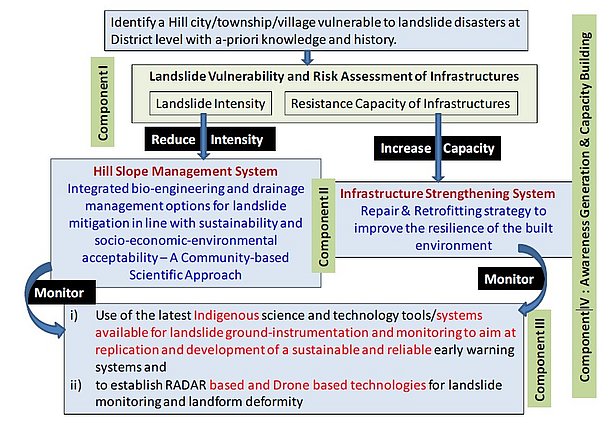Landslide Disaster Risk Reduction: Developments and Issues for Preparedness and Sustainable Built Habitat in Indian Himalayas
Datum:
Ort:
SLF Davos
Organisiert von:
SLF
Vortrag:
Debi Prasanna Kanungo, Chief Scientist & Professor (AcSIR) ,CSIR-Central Building Research Institute (CBRI), India
Moderation:
Jessica Munch
Sprache(n):
Englisch
Veranstaltungstyp:
Presentations and colloquia
Zielpublikum:
Anyone interested in the topic
Researchers and scientists working in this domain have conducted several studies and devised numerous technological interventions to reduce the impact of such hazard and make it safe for the community. Nevertheless, unplanned and uncontrolled construction activities, overseeing of building bylaws, using inappropriate building materials, poor workmanship, constructing buildings in the vulnerable zones and unawareness of the local community are some of the most common challenges in making the infrastructures safe and sustainable with reference to landslide disaster. Since building represents safety and security of the residents along with their emotional attachment after investing all their hard-earned money, it acts as the backbone uf human-coping capacity. But on priority basis, in oder to avert adverse situations. All the existing and upcoming infrastructures in the hilly terrain need proper attention and scientific efforts towards landslide risk reduction with advanced technological interventions.
The thalk on landslide disaster risk reduction in Indian Himalayas will stress upon some of the pertinent developments and issues on vulnerability-risk assessment, debirs flow hazard assessment and early warning system for better preparedness. This will help the society in reducing landslide risk with a vision of sustainable infrastructural development in difficult terrains. The conceptual framework as envisaged for landslide disaster risk reduction and mitigation is presented as follows:
